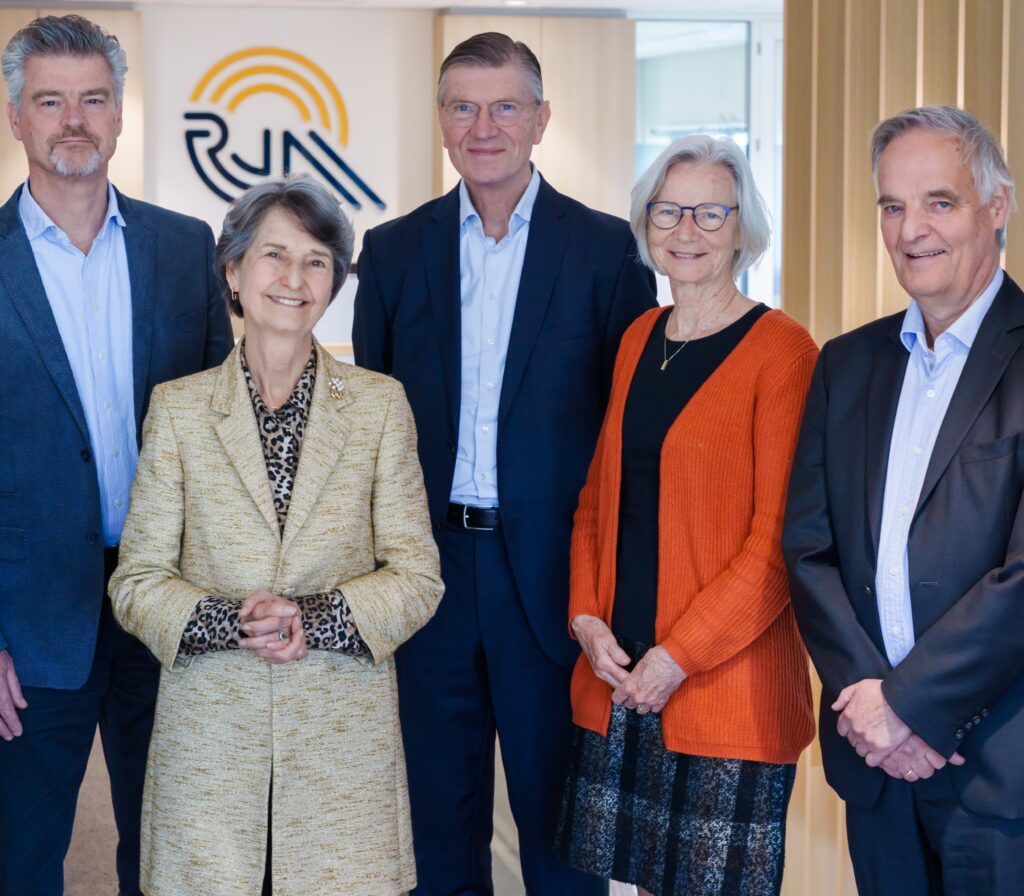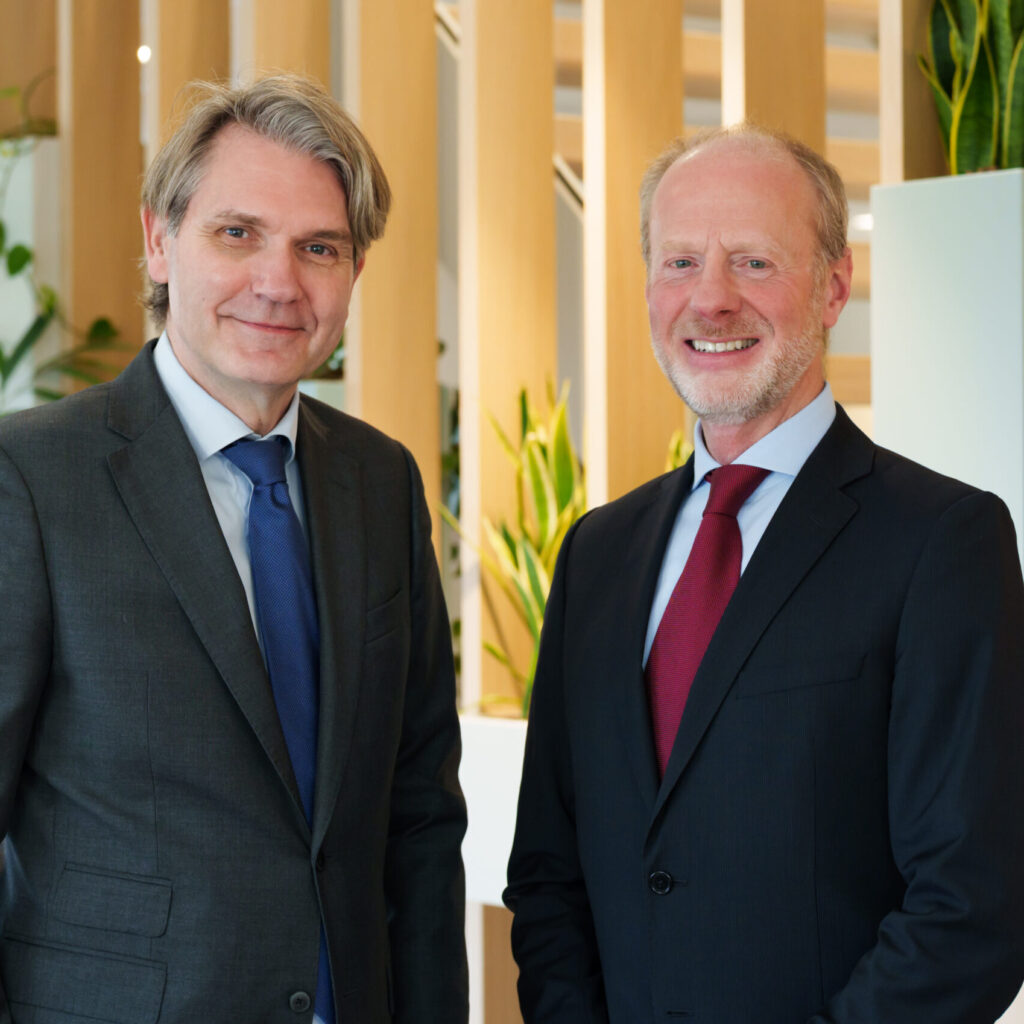Our activities in figures

Developments in 2024 followed each other in quick succession. The associated uncertainties are putting pressure on precisely the sense of confidence that citizens and businesses need more of. It is only when there is confidence that organisations can create value and markets can function properly. The RvA is continuously working on an up-to-date accreditation system and thus contributes to sustainable confidence.
The Board of Supervisors was informed in each meeting in 2024 about the progress of the change processes that have been deployed and acts as a critical sounding board. The transition to an information-driven organisation and information security are recurring topics of discussion.

We are positive about the clear way in which the Executive Board is steering the fundamental, sustainable (digital) transformation of the RvA’s core processes. This transformation is necessary to make the RvA future-proof in a rapidly changing world and to meet the changing needs of clients. There is a great deal of appreciation for the way in which the Ministry of Economic Affairs supports the RvA in this regard.
The Board of Supervisors places great importance on a constructive relationship with the RvA’s Works Council. Valuable discussions continued to take place in 2024. In 2024, the search began for a new member of the Board of Supervisors in consideration of the expiry of the appointment periods of Vice-Chair Ineke Mastenbroek. We are delighted with the arrival of Suzanne van der Pijll as a member of the Board of Supervisors as of 1 March 2025.
Despite the complex international context in which the RvA and clients operate, the Board of Supervisors looks forward to 2025 with confidence.
Yvonne van Rooy
Chair of the RvA Board of Supervisors
In 2024, sustainability played a major role for the RvA. We have been committed to determining how accreditation can make a valuable contribution to the global sustainability goals while further strengthening our relationships with stakeholders.
We went outside more often, talked to partners and improved our client processes and the organisation of our work. In this dynamic environment, we believe it is important to stay the course and continue to examine where we can provide added value.
This annual report looks back on those efforts and shows how the RvA, in collaboration with others, is working on sustainable confidence in the quality of products and services.
2024 was a year of increasing unrest. With the presidential elections in the United States, the ongoing war in Ukraine involving North Korea, and violence in Gaza.

The extreme weather in Europe and the increasing European awareness of the influence and dependability of Big Tech companies also kept us busy. Fortunately, there were also bright spots, such as the Summer Games in Paris, the first transplant of living heart valves and more and more green energy in Europe.
In this dynamic context, we are increasingly aware of the risks in society. The RvA also pays a lot of attention to risks in society and the economy, insofar as they affect our areas of work. As a regulatory body, we stay our course by keeping an eye on the societal risks that affect the quality of products and services.
Part of being a regulatory body is explaining what you stand for. Over the past year, the RvA has therefore been asked several times to explain our role, such as at the steel factory in IJmuiden. After all, as a regulatory body, you should also look critically at your own performance and your commitment to improvements in a particular system or sector.
Because several incidents have occurred within the historic sailing fleet, we participated in a government task force of the Ministry of Infrastructure and Water Management in 2024. This task force was set up to ensure that passengers and tourists could board the ships again with a feeling of safety.
A question that everyone asks themselves is how efficiently and effectively we can deal with all the information we encounter every day; as a citizen and as an employee of an organisation. For us, this question is the starting signal for a further transition. In 2024, we therefore continued to digitalise our core processes, also as the basis for the Information-driven Working programme.
We have taken major steps within Information-Driven Working in 2024 with the launch of dashboards. These dashboards provide insight into our work and show where we can make adjustments. They also give us client information as well as information for harmonising assessments.
This means that Information-driven Working is also a building block for the further development of our vision for risk-driven accreditation. The programme offers us opportunities for further development of the RvA into an information-driven organisation.
2024 was a very good year, in which we achieved our strategic objectives in a targeted manner. We worked hard and delivered a lot. In all kinds of areas, but ultimately with one goal: simplifying and digitalising the core processes. We are steadily succeeding in this. This is also reflected in clients’ satisfaction with the Prisma reporting tool. In this way, we are working towards an RvA that is future-proof and remains relevant.
Unfortunately, the execution of the work in the summer was hampered by an unforeseen combination of circumstances. This was the reason to take temporary measures, in order to guarantee the continuation of the work for our customers. We thank our colleagues for the way in which they stepped in for each other. This shows how customer-oriented our colleagues are.
It was also a year in which it became apparent that the usual volume of staff inflows and outflows had an outlier. This required efforts from the HR team and from the colleagues who onboarded the new colleagues.
We have once again succeeded in attracting new people, even though the tighter labour market made recruitment difficult, and even now it remains necessary to become increasingly creative in finding and retaining the right people.
All of the above has had a small impact on the financial result. The number of new, initial accreditation applications unexpectedly fell behind and, after years of stability, experienced an unforeseen sharp decline in 2024. Fortunately, the negative financial result can be absorbed by our reserves.
Despite this negative result, our Executive Board is positive thanks to the major steps we have taken with the organisation. 2024 provides a good basis for further achieving our ambitions as a regulatory body and service provider in 2025.
The Executive Board would like to thank the Ministry of Economic Affairs in particular for its support for the major transition that the RvA is going through. This support gives the Executive Board and MT more financial opportunities to improve various core processes and client processes.
The attitude of constructive criticism from the Ministry’s civil servants has led us to create additional scope for investment. This directly benefits the services we provide.
Joep de Haas and Roeland Nieuweboer
Executive Board